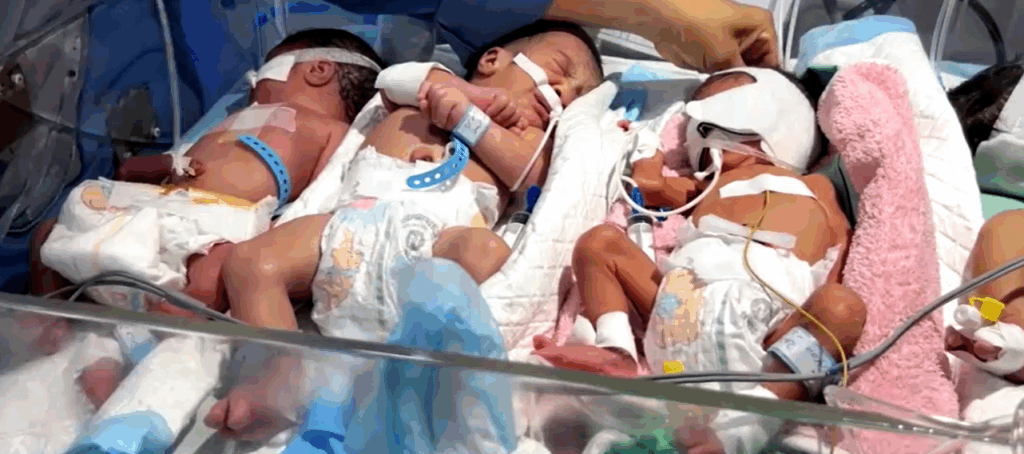- Web
- Feb 20, 2026
Gaza doctors cram babies into incubators as fuel shortage threatens hospitals
-

- Reuters
- Jul 15, 2025

GAZA: Doctors at Gaza City’s Al-Helou hospital said that they are struggling to care for newborn and premature babies, who are crammed into single incubators, due to crippling fuel shortages.
The doctors described the challenges they faced in keeping the newborns alive, while Israel presses on with its military campaign.
Read more: Pakistan plans to send special envoy to Kabul amid spike in violence
The head of the neonatal department at the hospital, Nasser Balbal, said that the lack of functioning generators and electricity is paralysing their services, leading to the death of some cases.
“We call for electric generators to be provided and for fuel to be provided in sufficient quantities in order to continue providing services,” he said.
Paediatrician Ziad al-Masry said they are forced to cram babies together in one incubator, which “leads to the spread of illness and inability to deal with them.”
Overwhelmed medics say the dwindling fuel supplies threaten to plunge them into darkness and paralyse hospitals and clinics in the Palestinian territory, where health services have been pummelled during 21 months of war.
An Israeli military official said around 160,000 litres of fuel destined for hospitals and other humanitarian facilities had entered Gaza since Wednesday (July 9), but that its distribution around the enclave was not under Israel’s purview.
Gaza, a tiny strip of land with a population of more than 2 million, was under a long, Israeli-led blockade before the war between Israel and Palestinian militant group Hamas erupted.
Palestinians and medical workers have accused the Israeli military of attacking hospitals, allegations it rejects.
Israel accuses Hamas of operating from medical facilities and running command centres underneath them, which Hamas denies.
Just half of Gaza’s 36 general hospitals are partially functioning, according to the U.N. agency.
COGAT, the Israeli military aid coordination agency, did not immediately respond to a request for comment about fuel shortages at Gaza’s medical facilities and the risk to patients.
Earlier this year, Israel imposed a total blockade on Gaza for nearly three months, before partly lifting it while introducing a U.S. and Israeli-backed scheme that largely bypasses the U.N. system. Israel accuses Hamas of diverting aid, something Hamas denies.
The latest bloodshed in the decades-old Israeli-Palestinian conflict was triggered in October 2023, when Hamas-led militants attacked southern Israel, killing around 1,200 people and taking 251 hostages, according to Israeli tallies.
Gaza’s health ministry says Israel’s response has killed over 57,000 Palestinians. It has also caused a hunger crisis, internally displaced almost all Gaza’s population and prompted accusations of genocide and war crimes, which Israel denies.




